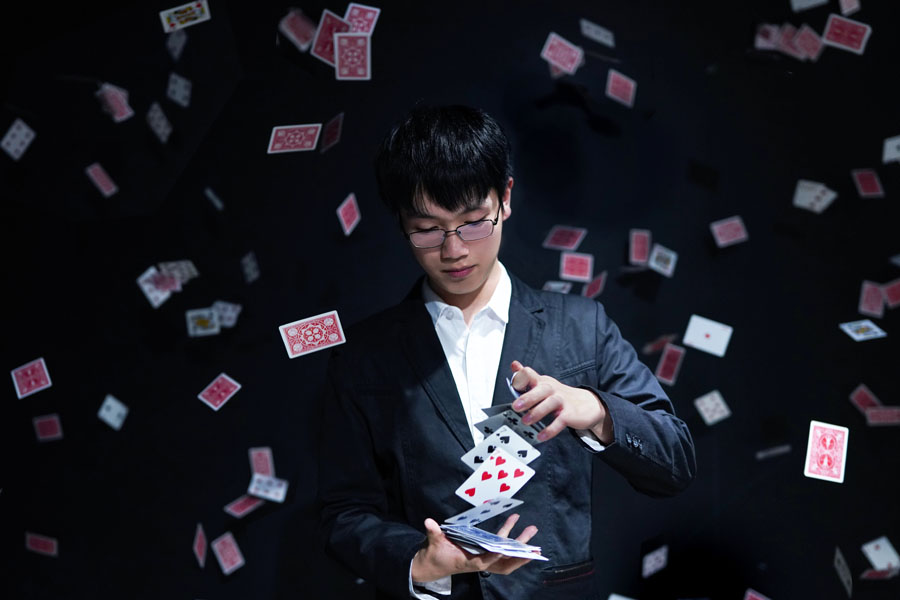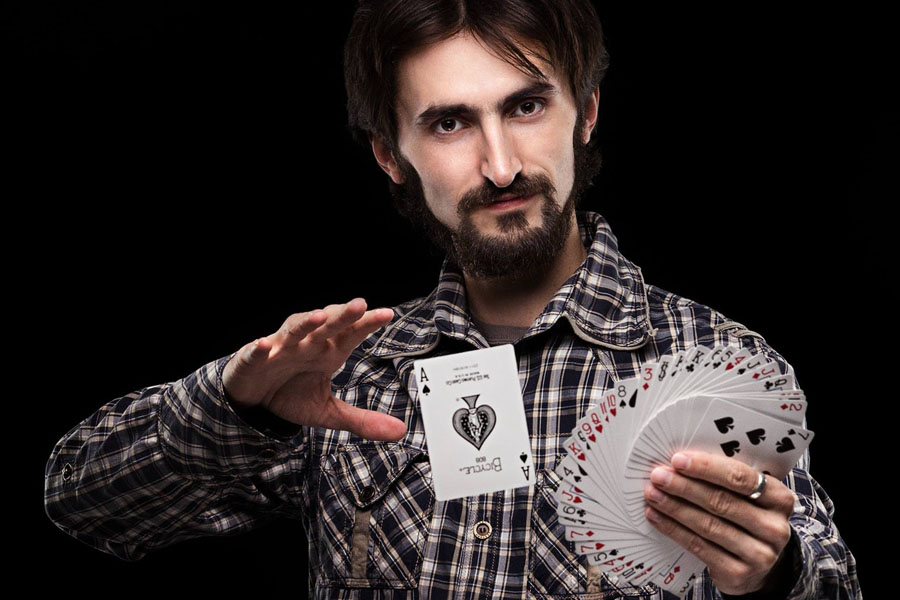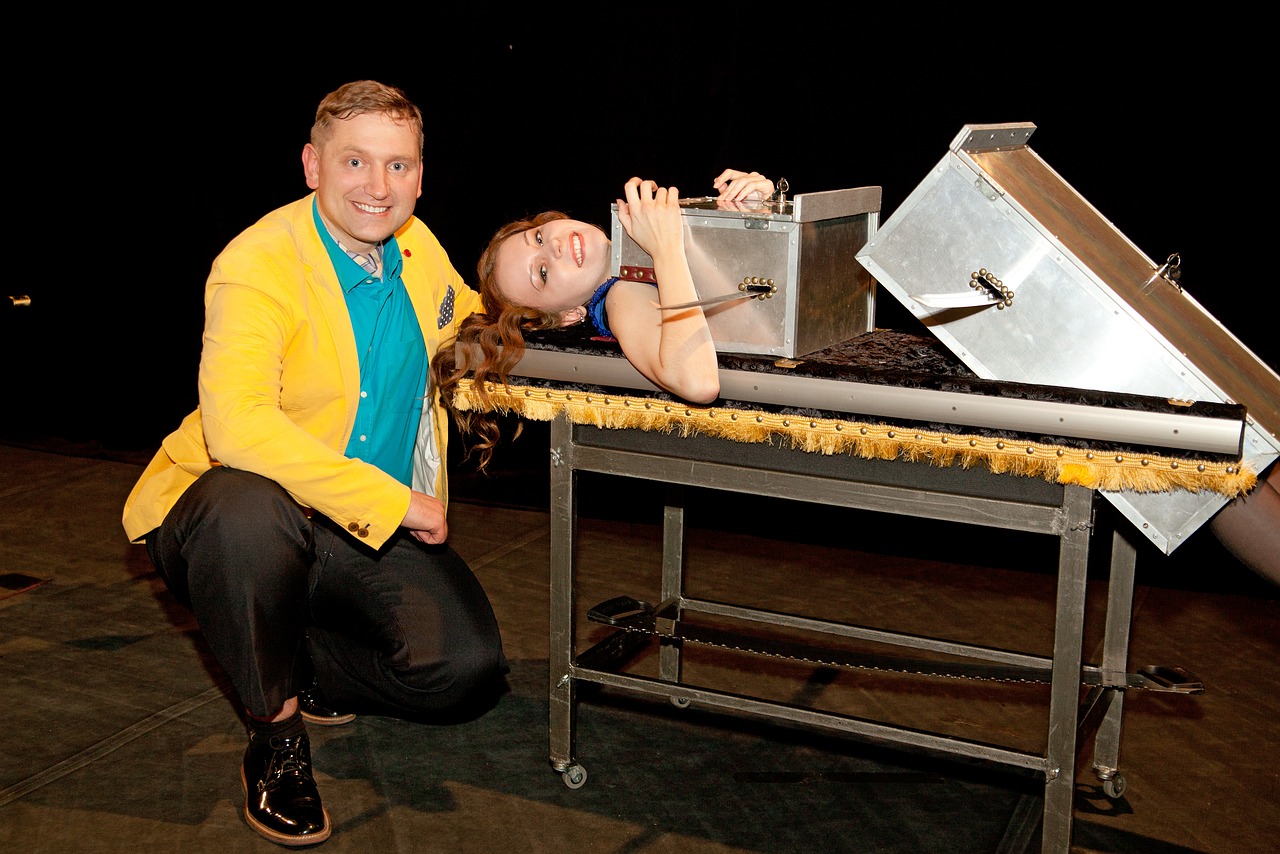
Magicians and magical performers have been around since ancient times, going back to the days of ancient Egypt and the original dynasties of China. The job of a magician has remained the same in principle since those long-gone days. Though the presentation might have changed, the fundamentals remain the same. So, what is a magician and what do they do? Today we will examine the history, training, and philosophy behind this ancient art form.
What Is a Magician and What Do They Do?

Image Source: Pexels
The question “what is a magician and what do they do” seems like it should have a simple answer, but there's a lot more to the profession than you might think. The principals behind magic and illusion performance are wrapped in a code of secrecy, so finding explicit information is almost impossible. But somehow, people still manage to learn about it and find their way onto the stage; so what is a magician supposed to do if they want to grow? The following article will break down what you should know about this beloved form of entertainment and shed some light on this shadowy profession.
What Is a Magician According to History?
In the ancient days of Egypt and China, and possibly even earlier than that, there were magical performance artists. These performers were less entertainment-minded and more like spiritual hucksters. It was easy to fool the masses with simple sleight of hand, and many of these magicians were believed to be the modern equivalent of a wizard or witch.
It didn't take long for people to drop the idea of spirits causing things to disappear, and the performance and entertainment value of stage magic rose to prominence. In many ancient cultures you can find records of performing magicians, much like traveling musicians or storytellers, that would move from village to village and show their art to the people.
The old tradition of the huckster pushed away and the role of illusionist became respected in the communities. China was known to produce some of the most revered magicians of all time and even considered the profession to be one of honor and respect. There are schools and academies still operating today that teach the basics of magical performance behind a cloak of strict secrecy, and their history can be traced back hundreds of years.
What Is a Magician in Modern Times?
The showbusiness part of magic has changed, but the basic idea behind being a magician has not. The code of conduct, the insular community of magicians, and the mentorship model has survived the millennia and remains the backbone of the profession. The role of a stage magician has evolved and branched out to include subclasses that require more specialized skill sets.
The introduction of the internet, and thus the availability of secrets to the general public, has caused many magicians to develop their own new illusions and reinvent many classical acts. Most people know the “sawing a lady in half” routine, but the reveal of how the trick was once done didn't kill the act. In fact, this revealing of secrets caused talented illusionists to rethink the act and put a new, novel spin on the gag. This only reinforces the illusion, as what was once an obvious act of trickery can now be turned on its head, surprising an audience that thought they knew what was happening.
The Code of Secrecy
Since the dawn of magical performance, the secrets behind the illusions have been closely guarded. In the ancient days of magic, most performers would take on apprentices and pass on their secrets to them, and only them. Their art was only viable as long as the general public was kept in the dark on how they worked. This was especially true when magicians were still regarded as conjurers and holders of special powers. As long as the secrets remained hidden, they could continue to profit off their illusions.
When general society abandoned the general ideas of powers and special abilities, the secrets became more of the “honest lies” type. People would show up to these performances and know they were seeing an illusion or trick, but the secret remained so they could still enjoy the wonder of what they were seeing. This is only possible because the magicians of the world adopt an unofficial code of secrecy.
There have been some unfortunate cases of magicians very publicly broadcasting their secrets to the world, but even in those rare cases the illusions they ruined were mostly out of vogue and in the public domain of knowledge. The working magicians of today are still loyal to this code of secrecy and guard their trade with every available effort.
What Types of Magician Are There?

Image Source: Pixabay
There are several types of magical subclasses that exist in modern performance. Most people have become familiar with these different types through talent competition shows or televised specials. Though they all follow the same code and achieve the same end results with an audience, there are nuanced differences between each type. Each of these basic styles of magic has a special set of skills that have been honed by the illusionists over years, sometimes even decades.
Traditional Stage Magician
The era of vaudeville in the nineteenth century saw the rise of the self-contained magic show. People were let in on the act because they knew no “real magic” was taking place. This was embraced by the masses, as the act of viewing something impossible with no clear explanation didn't need to be ethereal to be entertaining.
Magicians rose to prominence as touring acts, some even making their way around the world with a carefully curated collection of illusions and gags. While they all used sleight of hand and escape tricks to some degree, they were viewed as “jacks of all trades” and performed a healthy cross-section of different styled illusions.
Close-Up Magic and Sleight of Hand Performance
Often regarded as the surgical area of magic, sleight of hand and close-up illusions require a special set of skills. While a lot of tricks are modeled for the stage spectacle, sleight of hand is aimed towards a more intimate audience.
While the bright lights and music of the stage can help mask the illusion, close-up magic is laid bare for the viewer. This skill set is only adopted by the most dedicated magicians and requires thousands of hours of practice. Some of the most respected magicians of all time built their careers on a foundation of intimate close up tricks.
Escape Artist
Arguably the most famous magician of all time, Houdini was a master of the escape and built his fame from inside safes and straight jackets. While these were often sold as the feats of men with the power to break lock and key, there was still a foundation of magic at the core of the performance. A combination of spectacle, illusion, and sleight of hand acted as the toolset for the escape artist.
These magicians would sell their feats as more dangerous and more difficult than they often were, and the audiences were amazed by it. Don't let that fool you though, because there were still many tricks that could be fatal if the performer was not properly prepared.
Magical Performance Artist
There was a significant rise in these types of performances at the turn of the millennium. The spectacle of the act was elevated with live specials on television, complete with hosts and pregame discussions. These types of performances and illusions almost read like a sporting event, with commentators and audiences gathered around a public space, waiting for the magician to undertake their spectacular feat. These are commonly flashy and big illusions, rife with bright lights and a tall stage.
Times Square might see a performer attempt to defy the laws of biology and hold their breath for hours or even days at a time. These are often sold less as illusion and more as feats of strength or endurance, but the impossibility of what is happening is evidence that more is happening than meets the eye. The most skilled of these performers aren't even viewed as magicians or illusionists, as the act itself bills them as skilled perforce artists or athletes.
Are There Qualifications to Be a Magician?
It's reasonable to ask about the prerequisites to being a magician, as the profession itself is steeped in secrecy. What is a magician supposed to do for education? There are no accredited colleges that explicitly offer a course in illusion or stage magic, so it's difficult to find a starting point if you want to learn this art. While there are no official certifications or schools you can attend for a degree in magical studies, there are places you can go to hone your craft.
What Is a Magician - Final Thoughts
As we explained earlier, there's a strict code between magicians to never reveal how an illusion is done. If you came here asking “what is a magician and how do they do their tricks,” then we're sorry to disappoint. But worry not, because now you know how to get on the path to becoming a magician yourself. There are wonderful books and courses you can learn from, and with the age of the internet you have access to resources never seen before. The secrets are closely guarded, but the answers are there for those motivated enough to pursue them.
Featured Image Source: Unsplash
